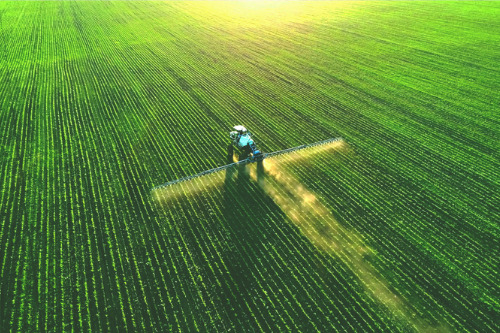-
01
Individual Farmer Certification
Individual farmers can take organic certification for the produce grown on their farms under the NPOP, NOP-USDA, JAS, EU standards. The process is simple and hassle-free, the required documentation needed is minimal & can be completed within a day or two depending upon the size of the farm. Our services work well for horticultural & agronomic crops like fruits, vegetables, spices, cereals, pulses, etc.
-
02
Group Certification
Our enhanced certification process is available to a group of farmers who come together to form a legal entity, which can then avail of the certification services. For a small, self-regulating group of farmers to avail the certification process, they must come together and form a legal entity. An internal control system (ICS) will be developed in which an internal inspector and field officer will monitor the farming activities carried out by the farmer within the group.
-
03
Trading & Organic Processing Certification
Handling is selling, processing, or packaging agricultural products. Organic products handling provides consumers with nutritious, high-quality supplies of organic products and organic farmers with a market without compromise to the organic integrity of their product. Any handling and processing of organic products should be optimized to maintain the quality and integrity of the product. Processing and handling of organic products should be done separately in time or place from handling and processing of non-organic products/conventional products. The critical control points must be taken into account during processing & handling activities. Exporters or traders must implement a proper traceability system for incoming and outgoing products. Storage areas and products stored must be properly labeled for identification.
-
04
Input Approval
Krushicert offers input approval services for manure, bio-fertilizer, bio-pesticide, herbal preparation, and traps. Off-farm inputs are similar to the ones used on-farm, with the exception that they come from outside sources. Examples of off-farm inputs include soil amendments, nutrients, pest control materials, and food processing aids. These products will be approved as per the national programme for organic production based on the ingredients present within the product. In organic agriculture, it is mandatory for the producer to use only approved off-farm inputs for growth and plant protection.
-
05
Wild Collection
Wild harvest collection refers to the collection of medicinal and aromatic plants, honey as well as sea and aquatic plant products (like seaweed) from their natural habitats. The main purpose of certifying the collection of wild plants/crops is to show that the collection does not endanger the ecosystem, and that the stability of the plant population or the ecosystem is not threatened. A wild crop/product must be harvested in a manner that ensures that such harvesting or gathering will not be destructive to the environment and will sustain the growth and production of the wild crop.
